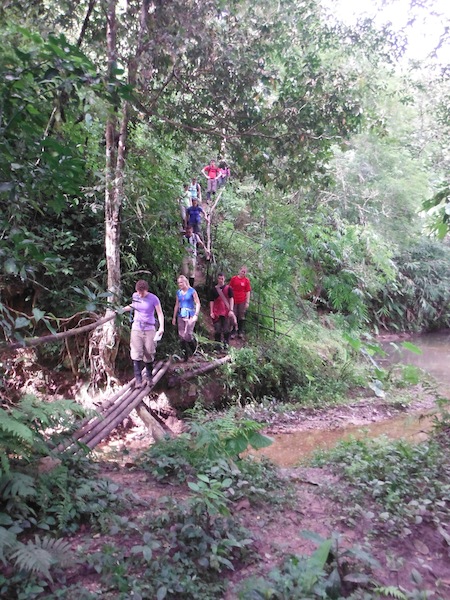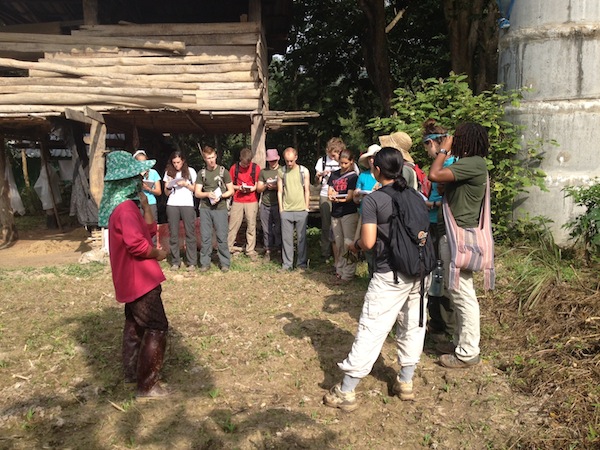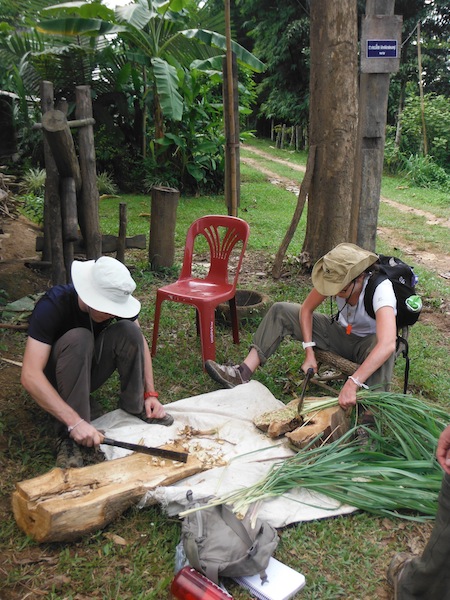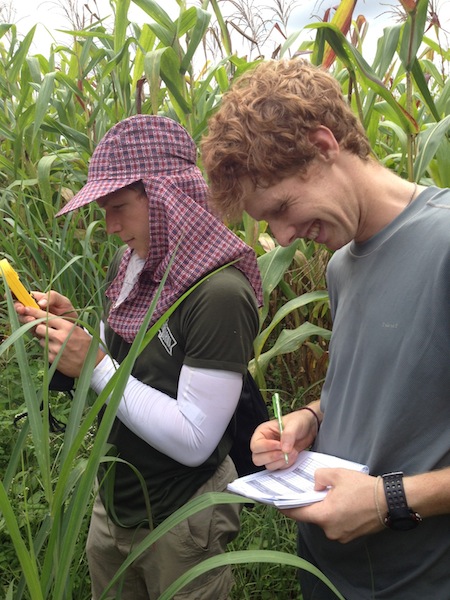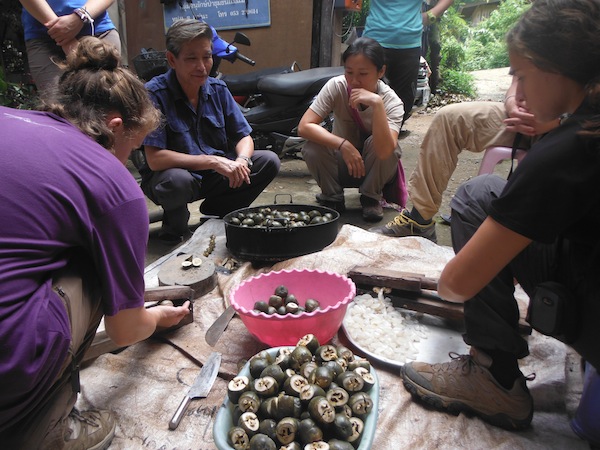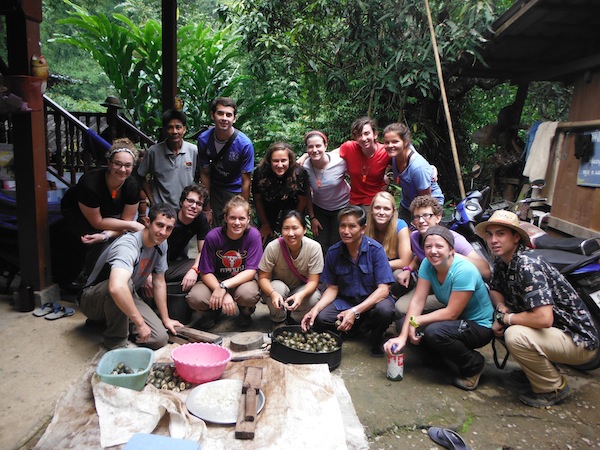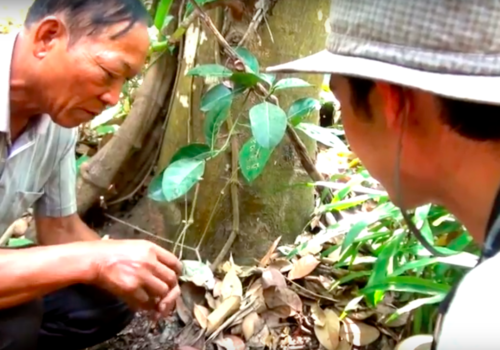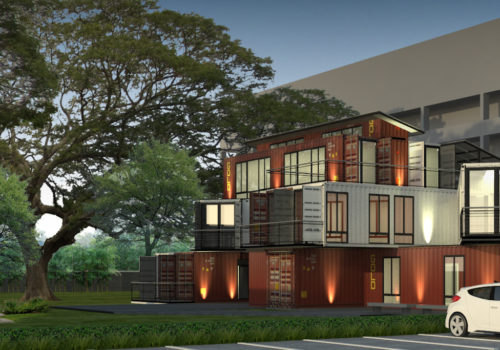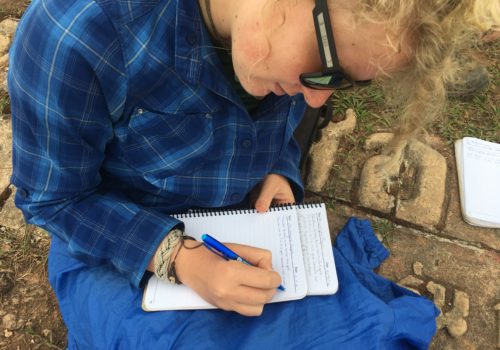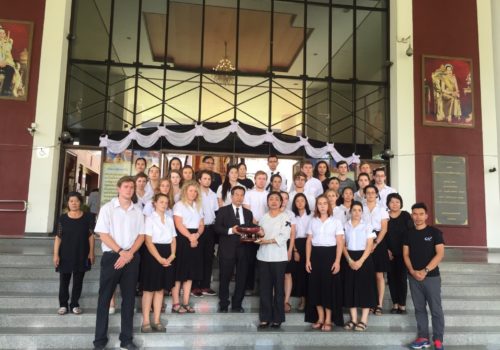Last week, students returned from their first expedition field course of the semester, Agroecology. The course took them on a hands-on exploration of sustainable food systems in Thailand, leading students to two specific field sites: The Mae Ta Coop and UHDP.
In the village of Mae Ta, students lived with families who have in the last 20 years transitioned from conventional, chemical-dependent farming to organic self-sufficiency. In Mae Ta, students worked with their families on their farms, met with local leaders to learn about seed saving, and woke up one day at 4 am to travel to the city market to sell vegetables with “Mae” (mothers) of Mae Ta. Students were inspired to see an example of successful sustainable farming and were further impressed by the food culture of Thai people.
One big question left standing is, “How do we bring these experiences and changed perceptions home?”
At the Upland Holistic Development Project (UHDP) in Fang, students learned alongside local instructors about agricultural strategies for improving the lives of Northern Thailand’s hill tribes people. Students explored several different agroforests, learning to identify local species of useful and edible fruits, shoots, and leaves. After a week of learning to make organic pesticide and fertilizer, a special meal of foraged foods, and a day-long pig harvest, students hiked into several villages to see UHDP’s work among one of the organizations’s focused people groups, the Palong.
Students learned that sustainable food sources for hill tribes people are often entangled in issues of citizenship and land rights. This week, the students are digging even deeper into these topics within the Forests course. In just a few days, they’ll be on their way to Karen villages in Mae Hong Son.
